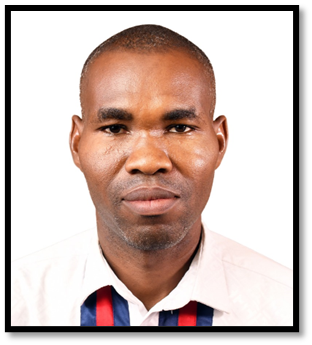Small Grants Spotlight: Donassongui Benjamin Soro

Author: Amnis Vigan
Theme: Democracy, Conflict, and Polarization
In this Small Grants Spotlight, we feature Donassongui Benjamin Soro, a teacher-researcher and specialist in religious and social history, Department of History, Université Alassane Ouattara (Bouaké – Côte d’Ivoire).
Donassongui Benjamin Soro is a recipient of EGAP’s West Africa Regional Hub Small Grants Fund. The project led under this grant is entitled: “The impact of social networks on the level of democracy in Côte d’Ivoire from 2010 to the present day.”
An abbreviated conversation is below. Read the full spotlight here.
How has user trust in information available on social media, evolved since 2010?
Soro: The spread of false information and hate speech has made it necessary to introduce regulations to protect privacy and data security. If properly implemented, these regulations could help limit abuse, protect users and ensure better use of these platforms.
What are the main results of this project regarding the impact of social media on democracy in Côte d’Ivoire since 2010?
Soro: We have three (3) results:
- Since 2010, social networks have strengthened the political participation of Ivorian citizens through e-militancy, the communication and monitoring of political information, support for and denunciation of socio-political events, the organization of training, conferences and online political panels, the implementation of political marketing strategies, etc;
- The accessibility of social networks to all facilitates interaction between citizens and leaders, so that citizens can express their views on a given socio-political situation through a like, a comment or a share. Social networks break the distance maintained by traditional state media between the people and their leaders; and
- The recurrence of misinformation on social networks is an obstacle to democracy. This calls for state regulation of the use of social networks. Unfortunately, this regulation of social networks becomes a pretext for controlling and hounding users in the political sense of social media.
How do you see social media’s role in promoting democratic values in Côte d’Ivoire?
Soro: …we need to encourage the State to regulate the use of social networks, rather than control and track down discordant or contradictory voices on social networks. We also need to educate people to use social networks more efficiently, by integrating lessons on the democratic use of social networks into secondary and university education.
How did EGAP funding benefit your project?
Soro: The funding has benefited us on several levels:
- Practical and theoretical reinforcement of our capacities in qualitative and quantitative methods;
- Creation of a highly rewarding teamwork environment in which we faced real challenges;
- Developing our understanding of the different stages in carrying out a research project and how to deal with them;
- Strengthening our resilience and sense of leadership through the role of principal investigator on the Social Networks and Democracy project.
We would therefore like to express our gratitude to the Cerap-Egap team for this wonderful opportunity to fund our project and plunge us into the heart of the techno/digital and political changes of our time. This funding has enabled us to continue our training and strengthen the skills and knowledge we have already acquired. It is thus making a significant contribution to the development of quality research in Africa.